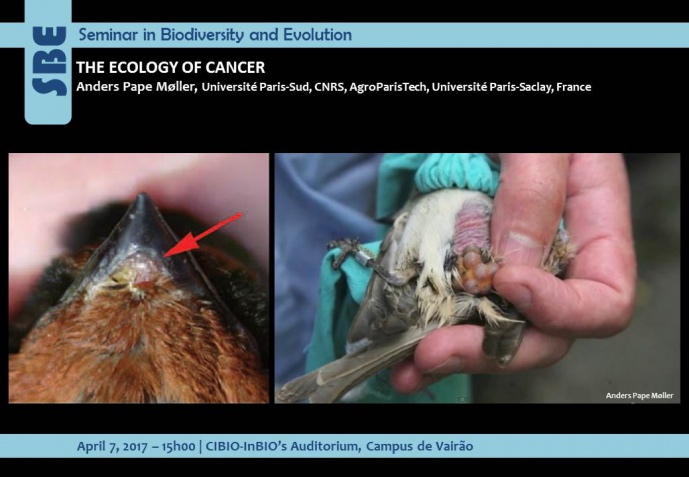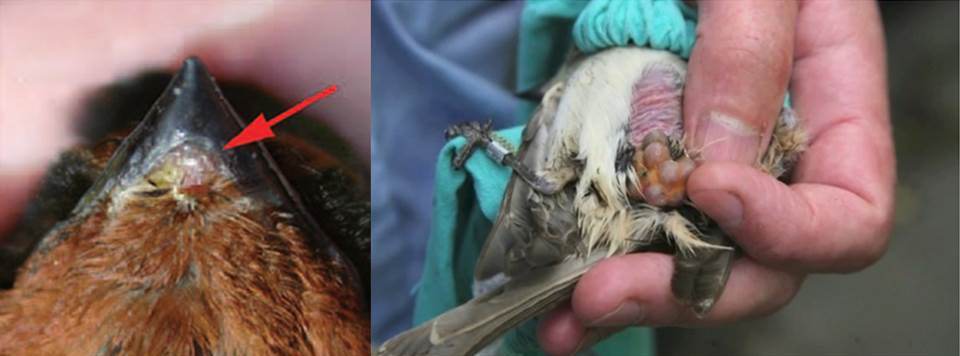THE ECOLOGY OF CANCER


Cancer has evolved as a consequence of multi-cellularity and uncontrolled cell division. Numerous cancer suppression mechanisms have evolved, and they are generally based on multiple trade-offs as are other life history traits. I used the presence of tumors in 128 out of more than 10,000 thoroughly investigated birds to test predictions relating tumor incidence to seasonal fluctuations in tissue regeneration, risk of predation, disease and immunity, life history, physiology and feeding innovations. These findings highlight the importance of an understanding of ecology and evolution for understanding cancer and other diseases that are common in humans, domestic animals and free-living animals alike.
Anders Pape Møller has broad research interests in ecology and evolution, with the main emphasis currently on the five themes: 1) Climate change and its ecological and evolutionary consequences. Rapid climatic change has affected numerous living beings, although the long-term consequences for individuals, populations and species remain poorly understood. 2) Ecological and evolutionary consequences of Chernobyl. Highly heterogeneous levels of contamination provide a unique opportunity to do research on the consequences of radiation including effects of radiation on mutation rates and adaptation to radiation. 3) Parasite-host coevolution. Parasites constitute important selective forces affecting all living beings, with consequences for life history, sexual selection and interactions among species. 4) Sexual selection and the evolution of secondary sexual characters. With broad interests in the evolution and the maintenance of secondary sexual characters, and the evolution of signals and their information content. 5) The ecology and evolution of urbanization. Large areas are currently being urbanized, and this tendency will continue for at least the next century. Adaptation of living beings to this novel environment characterized by long growing seasons, high productivity and high levels of pollution provides a unique opportunity to investigate evolution in action.
[Host: Zbyszek Boratynski, Biodiversity of Deserts and Arid Regions]
Image credits: Anders Pape Møller